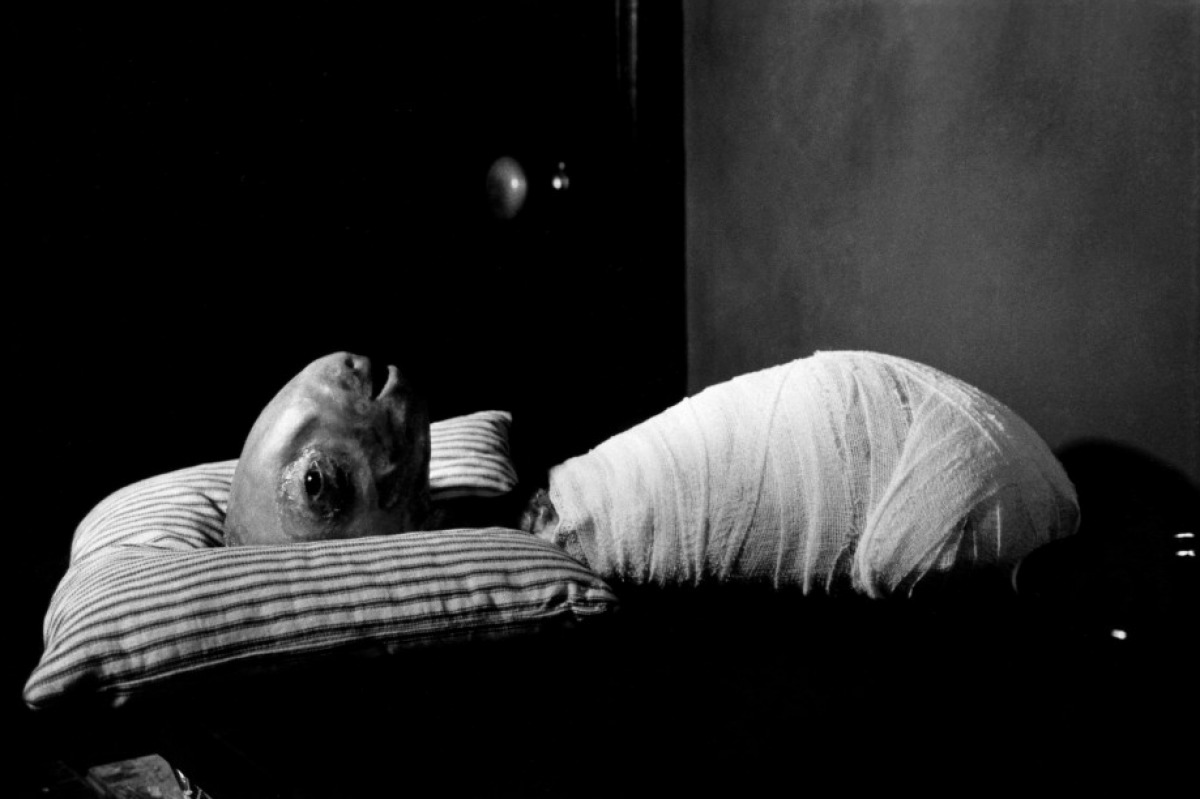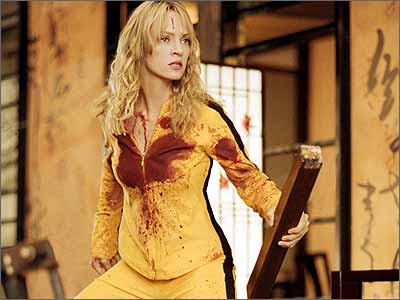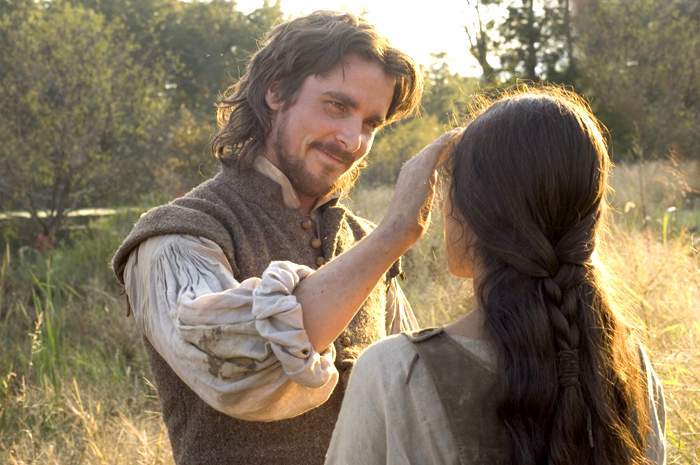Originally Written and Posted at Epinions.com on 10/4/06.
Considered to be Spain's most celebrated director after the late Luis Bunuel, Pedro Almodovar is among one of cinema's most revered and controversial directors. Early films like Matador and La Ley del Deseo (Laws of Desire) reveals Almodovar's love of camp and melodrama. 1988's Mujeres al Borde de un Ataque de Nervios (Women on the Verge of a Nervous Breakdown) gained him international attention for its mix of comedy and drama. While subsequent Almodovar films like Kika, Atame!, and Tacones Lejanos weren't up to par despite their campy irreverence, Almodovar was considered a fine director but not one many could take seriously. Then in 1999, the openly-gay director went on a more radical approach by going into a full-on drama about a mother trying to understand her son's death through other people in 1999's Todo Sobre mi Madre (All About My Mother).
Written and directed by Almodovar, Todo Sobre mi Madre is about a mother grieving for the death of her sons as she meets several people who are connected to her late son. Considered to be Almodovar's most mature and complex film at the time, it proved that Almodovar can tackle anything as he goes further into character and issues. Starring Cecilia Roth, Marisa Paredes, Candela Pena, Antonia San Juan, Eloy Azorin, Toni Canto, Rosa Maria Sarda, and Penelope Cruz. Todo Sobre mi Madre is an entrancing, heartfelt masterpiece from Spain's most prolific and celebrated directors.
While working as a nurse in a hospital in Madrid, Manuela (Cecilia Roth) is searching for donors by day. At night, she's a heartwarming mother to her son Esteban (Eloy Azorin) who is about to turn 17 the next day. On the night before his birthday, the two watched All About Eve starring Bette Davis where Esteban noticed the wrong translation of the title where it was called Eve Unveiled when it's correct Spanish translation is Todo Sobre Eve. Esteban is an aspiring writer who learned that his mother used to act when she was young in theater programs where she met his father whom he's never saw and wants to know about. After trying to get some information about her ex-husband in the hospital, Manuela decides to take her son to see the play A Streetcar Named Desire starring Huma Roja (Marisa Paredes) who plays Blanche. Hoping to have her autograph, Esteban and Manuela wait on a rainy night as they watch Huma and another actress go to a taxi where Esteban runs to the taxi hoping to get an autograph but the taxi leaves as Esteban runs to catch up only to be hit by a car.
Esteban is dead as Manuela is in grief only to be accompanied by a friend as she decides to give Esteban's heart to someone who needs it. Weeks after his death, Manuela decides to go travel to Barcelona to find Esteban's father who is now a drag queen named Lola (Toni Canto). Hoping to find her in the seedy, prostitution world of Barcelona, she finds a transsexual hooker she knows in Agrado whom she knows several ago. After saving Agrado (Antonia San Juan) from an assault, she is brought to her home in hoping to find Lola. Agrado reveals that Lola has made her broke by using the money to go to Argentina. Hoping to get a job, Manuela and Agrado turn to a young, charming nun named Sister Rosa (Penelope Cruz) who knows Lola. Rosa hopes to go to El Salvador to help people while she tries to get Manuela a job as a cook for her artist mother (Rosa Maria Sadra) and dementia father (Fernando Fernan Gomez) whom Rosa rarely sees. Manuela learns that a production of Streetcar is in Barcelona as she hopes to meet Huma only to find a haggard-looking Nina (Candela Pena), who plays Stella, walking away.
Huma wants to look for Nina as Manuela helps her where they find the drug-addicted Nina. The meeting with Huma gives Manuela a job as her personal assistant while Manuela learns that Rosa is pregnant with Lola's child. Taking her to the hospital, Rosa is three months pregnant and learns weeks later from a test, she is HIV-positive. Rosa wants to hide her pregnancy and disease from her mother, whom she often has tension with as Manuela lets her move into her apartment. When Nina is ill, Manuela takes over as Manuela makes a confession to Huma who remembers Esteban from that night. Huma makes a visit to Manuela's apartment where Manuela invites Agrado who takes over Manuela's assistance duties. Agrado's winning and charming personality wins Huma over as she watches out over Nina. With Rosa's child ready to come out, Rosa makes peace with her mother as Manuela finally meets Lola who now learns that he had a son. Manuela is forced to make decisions about her own life and who she wants to be in the life of Rosa's son.
Melodrama is often done with a lot of over-the-top theatrics in waves of emotions where sometimes they work and sometimes, they don't. While Almodovar brings a European restraint to that, he channels more towards American cinema. Notably the films of the 1950s like All About Eve and A Streetcar Named Desire while dedicating the film to Bette Davis, Gena Rowlands, French actress Romy Schneider, and his own mother, who died in the fall of 1999. The film is really about a woman in grief over her son's death and how she finds solace in other women she barely knows yet are connected in some ways to her son. It's really a film about motherhood considering that Rosa has tension with her own mother while Cecilia is in mourning while being a mother of sorts to Rosa and Agrado along with Huma who is trying to care of Nina. Almodovar's genius isn't just in his writing that sets up intricate points of the plot and multi-dimensional characters but also his observant yet theatrical approach to directing.
Almodovar as a writer is more concerned at what his characters are feeling and what they're going through rather than put them into some absurd situation. That's where his strength as a director is shown. His presentation is theatrical since he uses locations and settings for the characters to come together and talk to each other. While each character have their own individual moments for the audience to get to know them, it's when they're together that really let the audience be a part of whatever they're talking about. The way Almodovar moves his camera to observe what's going on while using the locations of Madrid and Barcelona to reveal the difference in the cities and culture. Even in the way Almodovar conveys melodrama, he's aware that he knows what the audience will expect yet the way he approaches the ending is something that is more hopeful and realistic that audiences can relate to.
Showcasing the colors of Spain with its vibrant colors is cinematographer Affonso Beato whose color schemes of red and yellow highlight the look of Madrid while showing more vibrant yet intimate settings in the film's interior sequences. Art director Antxon Gomez with set decorator Federico G. Cambero do wonderful work in the look of the stage with a blue background wall along with the Barcelona home of Manuela that is filled with color to complement Beato's camera work. Costume designers Sabine Daigeler and Jose Maria De Cossio also play to the film's vibrant colors by making great clothes in the casual look for Rosa, the red power-suits of Huma, the vibrancy of Agrado, and the casual yet classy wardrobe of Manuela. Longtime editor Jose Salcedo does some wonderful, tight editing to convey the energy of Manuela's journey while giving the long takes a rhythm and style to Almodovar's observant directing. Sound designer Miguel Rejas also does great work to convey the atmosphere of both Madrid and Barcelona to reveal the difference of culture.
Longtime composer Alberto Iglesias brings a wonderfully traditional, acoustic performance to the film with melodic, Spanish guitar music along with elements of orchestral arrangements to play the film's melodrama. Featuring songs from Dino Saluzzi, the soundtrack is rich in playing the emotions and sisterhood of the film.
The film's cast is indeed superb since Almodovar is great when working with ensembles. Smaller performances from Fernando Fernan Gomez as Rosa's father and Carlos Lozano as an actor named Mario who plays the Kowalski character in the Streetcar play are very memorable. Eloy Azorin is excellent as the ambitious yet heartwarming Esteban who brings a lot of talent into writing while being a good son to Manuela as his brief performance is memorable. Toni Canto is also great as Lola who only shows up late in the film in a couple of crucial scenes yet the performance that is filled with grief and regret is done with great compassion as Canto does some amazing work. Rosa Maria Sadra is wonderful as Rosa's strict, arty mother who is often concerned about her daughter's adventurous attitude as Sadra brings realism and compassion to the role. Candela Pena is really good as the haggard, diva-like Nina who prefers her own addiction to the motherly warmth of Huma as Pena brings an energetic performance.
Antonia San Juan is a real delight as the charming Agrado with her musings on her body, homosexuality, and existentialism while bringing a sense of comfort to Huma, Rosa, and Manuela. San Juan brings a lot of humor while having her own moment where her personality is something that the audience an enjoy. Marisa Paredes is great as the working actress Huma whose understanding of grief brings a sense of maternal compassion to the people around her while trying to take care of Nina. Paredes brings the right sense of warmth and wisdom of a working actress playing characters going through the same struggle. Penelope Cruz also brings a lot of warmth and spirit as the naive Rosa who believes that helping people would bring her fulfillment until she learns of her own cruel fate. Cruz brings the joy and optimism of a character whose fate is grim as Cruz warms every scene with a smile, even in some of the film's heartbreaking scenes.
Cecilia Roth gives one of the best performances of the 1990s as the grief-stricken Manuela. A longtime collaborator of Almodovar, Roth brings all of the emotions and sadness of a woman who has lost her son while trying to find her own footing without him. Roth has great chemistry with her fellow co-stars while proving her range as an actress in intimate settings with her co-stars while proving her theatrical range in the scenes when she acts in the theater. It’s a great performance from the multi-talented Roth who won the Best Actress prize at the 1999 Cannes Film Festival as well as several prizes in Europe.
When Todo Sobre mi Madre was released at the 1999 Cannes Film Festival, the film proved to be a big hit as Almodovar won the Best Director prize though many thought he would win the Palme D'or but lost to the Dardenne Brothers' film Rosetta. Still, the international success of Almodovar's film brought him a bigger audience, especially in the U.S. where Almodovar won several critics prizes as well as Best Foreign Film prizes in the Golden Globes and the Oscar which he and brother Augustin received. Recently, with the upcoming release of Volver in 2006, Todo Sobre mi Madre was re-released along with seven other Almodovar films in a 2-week retrospective festival called Viva Pedro in the U.S.
While not as funny or extravagant as early Almodovar films, Todo Sobre mi Madre remains one of his best films. Thanks to a great cast led by Cecilia Roth with great support from Antonia San Juan, Marisa Paredes, and Penelope Cruz. This is a film that isn't just a film that women can enjoy but a film that is very accessible to a wide audience once they get pass some of the homosexual and transsexual content. In the end, not only is this film a great tribute to women and actress but also the cinema worldwide as Pedro Almodovar takes a great big step into greatness with the wonderful Todo Sobre mi Madre.
Pedro Almodovar Films: Pepi, Luci, Bom - Labyrinth of Passion - Dark Habits - What Have I Done to Deserve This? - Matador - Law of Desire - Women on the Verge of a Nervous Breakdown - Tie Me Up! Tie Me Down! - High Heels - Kika - The Flower of My Secret - Live Flesh - Talk to Her - Bad Education - Volver - Broken Embraces - The Skin I Live In - I'm So Excited! - Julieta - Pain & Glory - (The Human Voice (2020 short film)) - (Parallel Mothers)
The Auteurs #37: Pedro Almodovar Pt. 1 - Pt. 2
The Auteurs #37: Pedro Almodovar Pt. 1 - Pt. 2
© thevoid99 2011
































